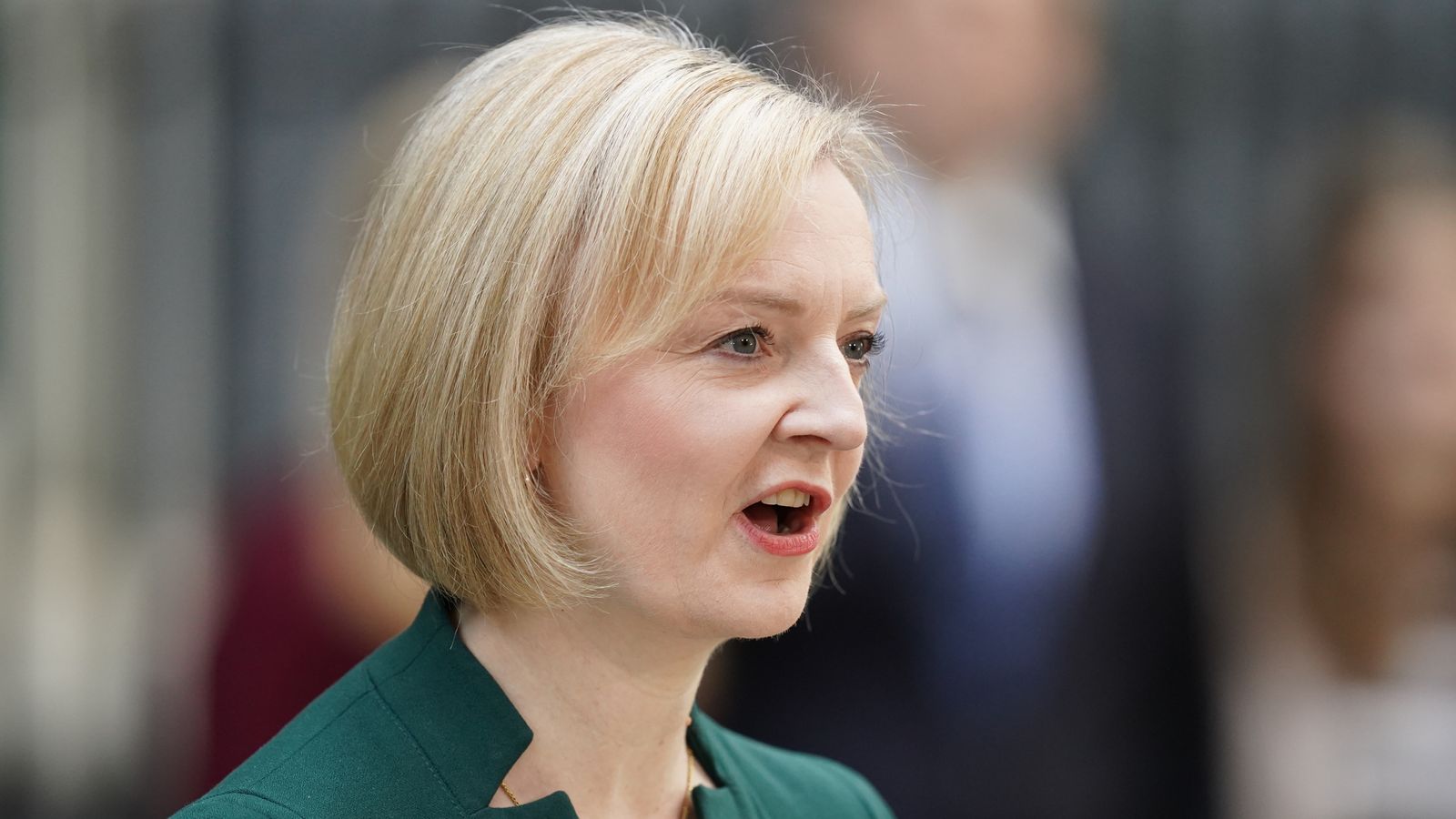It is perhaps no surprise that Liz Truss has been keeping a low profile.
After being accused of economic irresponsibility and seeing the man she beat wheeled in to clean up the mess, any rare sighting of Britain’s shortest-serving prime minister on the parliamentary estate has been met with a flurry of excitement.
The former PM though has quietly been making waves from the shadows: old Truss-backing WhatsApp groups are kicking back into action, her closest allies are rallying support for a growth-focused agenda.
Now Liz Truss herself has surfaced, with a public PR push including her first TV interview since resigning.
In an interview with the Telegraph she admits “communication could have been better” and she underestimated the “strength of the economic orthodoxy”, but maintains her philosophy was the right one.
It is not uncommon for a former prime minister to make their views known, but Truss’s exile is still fresh and the speed at which the pendulum has swung so far from her bold tax-cutting agenda has rattled some MPs.
One senior conservative, and former Truss ally, tells me “it’s difficult to see the light at the end of the tunnel because the tunnel gets longer and longer”.
So how damaging will Truss’s interventions be to Sunak?
The problem isn’t so much the messenger as the message itself. As one backbencher puts it: “No one thinks Liz Truss is returning as the Messiah but I do want a plan for growth.”
Her words tap into a mood and growing push from some MPs for more optimism from the chancellor. Jeremy Hunt has tried to strike a more positive tone in recent weeks, but he says tax cuts will only come “when the time is right”.
Truss’s allies insist her aim isn’t to damage the government, but a month out from the budget her intervention certainly adds pressure. Many now see the spring statement and subsequent local elections in May as two big tests for the prime minister.
“If there is a lousy budget, and if there is a disaster at the May elections then there will be instability,” one MPs tells me.
And of course, it’s not just Truss: three backbench former prime ministers, two only recently ousted, looming large is uncomfortable for any party leader.
Not since Margaret Thatcher has there been a comparable situation.
Click to subscribe to the Sophy Ridge on Sunday podcast
Theresa May, Liz Truss and Boris Johnson in many ways represent different factions of the party, and each have a pull factor.
Johnson has certainly been keen to make his presence felt on the world stage, and has loyal backers who would love to see him back in Number 10.
As one former cabinet minister put it, “the Boris blunderbuss” is never far away, “every now and then he fires the trigger just to make sure everyone is aware he’s till there”.
Sunak may be the leader to take the party into the next general election, but as that day slowly creeps into view, his parliamentary colleagues are growing impatient – and Truss’s political comeback doesn’t help.









